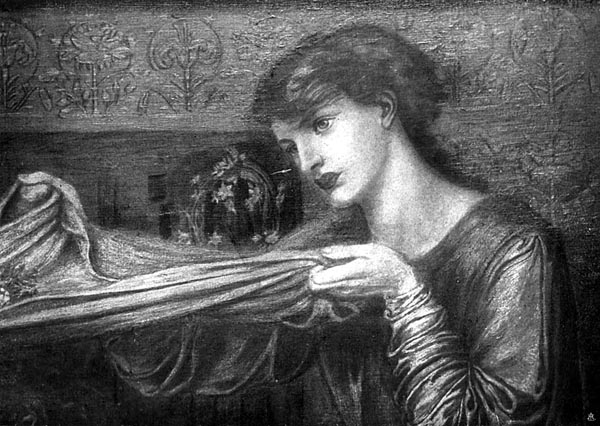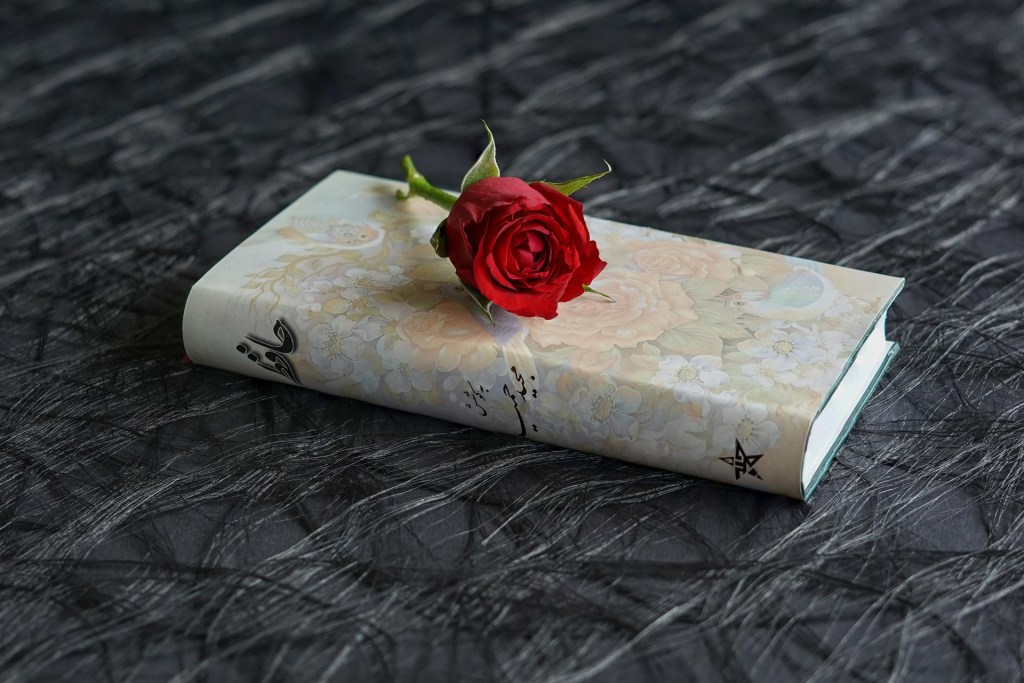Wong Kar-wai is not just a movie director, he is a psychologist and a poet dealing with romantic love. His style is so nuanced and brought to perfection that he can be put in the same sentence with the great Italian poet Dante Alighieri; the early poems of the aforementioned poet are not his authentically, he imitated other authors, mostly Guido Cavalcanti.
Cavalcanti’s poem Fresca rosa novella partially reads
‘Tu m’hai si piena di dolor la mente’
You have filled my mind with such agony
‘Voi che per li occhi mi passaste l’core’
You who grasp my heart through the eyes
We can see that in Cavalcanti’s poem visual tropes are often used. In the first part od Wong Kar-wai’s film Chungking Express, the main female character wears sunglassees in the night; if interpreted in the spirit of Cavalcanti’s poem, it seems that she doesn’t want anyone to fall in love with her (it is true that she does drug deals and wears sunglasses for practical reasons, but it may also be seen as a defense mechanism).
A part of one of Dante’s poems published in his book Vita nuova reads:
Joyfully Amor seemed to me to hold
my heart in his hand, and held in his arms
my lady wrapped in cloth sleeping.
Then he woke her, and that burning heart
he fed to her reverently, she fearing
Afterwards he went not to be seen weeping.

Dante Gabriel Rossetti, The Pious Lady on the Right (Study for Dante’s Dream)
Note: The painting, The Pious Lady on the Right, although seeming to be at odds with the ideas presented, portrays the spirit of the aforementioned poem and Wong Kar-wai’s work; a woman is the victim of Amor as well as man.
The connection between Dante from Vita nuova, Cavalcanti and Wong Kar-wai is obvious – both of them find romantic love destructive. In his movies love is never actualized; it is a zero-sum game, but in the end his characters don’t end up with a zero; they end up emotionally crushed, but also enriched by the joyous experience of romantic love. 2046 is the final part of a loose trilogy Days of Being Wild – In the Mood for Love – 2046. Some of the characters from the previous two movies appear again in 2046, but transformed and severely emotionally “damaged”. 2046 tells us what happened with Mr. Chow after the events in In the Mood For Love. Structurally, the film can be divided into two parts. In the first part, Mr. Chow is a libertine lover; in the second he is a nostalgic and caring gentleman.
He engages with a woman who lives next door; she doesn’t succumb easily to Mr. Chow’s newfound charm. He has to “win her over”, after she slaps him when he presents her with a gift. They form an unusual relationship in which Mr. Chow makes the rules; he does not want to get emotionally involved. In the beginning, she is similar to Charles Baudelaire’s lover Jeanne Duval, at least as much as we can tell from Baudelaire’s reflections about her in his poems; he often compares her to a cat. The subplot in the film follows the motel owner’s daughter’s relationship with a Japanese man; although this relationship succeeds, precisely that fact is a catalyst for Mr. Chow’s intensified suffering. Mr. Chow is a writer, and he imagines a place called 2046 where people can recapture their lost memories and experience them again, possibly into eternity.
French philosopher René Descartes used to imagine that an evil demon of “utmost power and cunning has employed all his energies in order to deceive me.” This “demon”, for Descartes, is our senses; applying this notion of Cartesian philosophy to the world of Wong Kar-wai’s movies leads to the conclusion that romantic feelings are such a demon. We can see plainly that in the end Mr. Chow’s life has lost its meaning, romantic feelings have played so many tricks on him that in the end he starts living the life of a gambler. Gambling is a game of chance and luck, symbolically it can be compared to romantic experience; he simply cannot surpass modus operandi he is used to.
Everyone who goes to 2046 has the same intention: they want to recapture lost memories. Because in 2046… nothing ever changes.
Mr. Chow
During his voyages Odysseus encountered Phaecians, a highly civilized race who live the life of pleasure and enjoyment of poetry. The king offers him to marry Nausicaa, his daughter, and to live with them. After hearing the bard singing, Odysseus says:
My Lord Alcinous, what could be finer
Than listening to a singer of tales
Such as Demodocus with a voice like god’s?
Nothing we do is sweeter than this
For Odysseus, this is one of the greatest temptations he encountered during his journeys. Mr. Chow is tempted with 2046 as well; they both leave the place since they are aware that their life journey simply cannot stop there; they are destined for more. The Japanese man Mr. Chow imagines goes to 2046 and is simply lost during the encounter with a robot he falls in love with. Both the Japanese man and Mr. Chow, who leaves 2046, are a significant part of his personality; he wants to live “among the Phaecians”, but his instinct tells him that it is utterly destructive to live an illusion and a lie. Escaping illusions and lies can be more harmful than living in them, but both Odysseus and Mr. Chow show moral strength and virtue and leave the place. They decide to live the life of pain and hardship.
The episode with Phaecians has another side to it. It represents the dangers of music and poetry to an individual’s well-being. Immersing oneself into life of aesthetic pleasure, as is shown by Kierkegaard in his Enten-Eller, can be immensely immersive and ends up in confusion, lack of moral clarity. Although Kierkegaard presents aesthetical and ethical life as matters of existential choice and implies that they are incommensurable, it is obvious (when his other works are considered as an argument supporting the thesis) that he is advocating religious life. In his Politeia, Plato writes that Homer should be honored and then excluded from the polity. Plato saw the dangers poetry can bring. Wong Kar-wai and Dante are poets who are aware of the dangers romantic love and uncontrolled emotions can bring; we can only guess if Plato would include them in his polity.
End Note: I owe my gratitude regarding to the more nuanced understanding of Dante’s poetry to my former professoressa, Ludovica
Hrvoje Galić

4 responses to “Poetry of Destructive Love in Wong Kar-wai’s “2046””
It’s been a while since I watched In the Mood for Love (2001), one of only two films of his I’ve seen, and I continue to struggle with my interpretations of that story, as well as Wong’s stylish visuals in general. His transient, flowing cinematography and deliberate editing mirror your prose — hypnotic at times, while also intimidating, in a way.
Would you recommend rewatching IML before 2046, or can 2046 be enjoyed as a standalone? The latter is a film I’ve been meaning to watch for some time.
LikeLiked by 1 person
When I gave a shot at interpreting In the Mood for Love on another blog (Taste of Cinema) my emphasis was on the tragic choice the protagonists are forced to make, the subtle eroticism, the role of space, music and ambient in the film. It is a very complex and captivating film, one of the greatest of this century definitely.
I agree with your thoughts about his cinematography, his use of colors (especially in In the Mood for Love) is also an important element I would like to note. I would recommend all his other movies, but especially The Days of Being Wild and Fallen Angels.
I would recommend either, both approaches are good, 2046 can be enjoyed as a standalone, but the experience is enrichened if one is familiar at least with the basic story of In the Mood for Love, and even The Days of Being Wild. So, watching at least In the Mood for Love (again) before can lead to a better understanding and enjoyment of some elements of 2046. But the main concepts in the film can be grasped by watching it as a standalone and it doesn’t lose any of its potency
LikeLike
I’m not convinced by the European influences on Wong. He IS Chinese, more likely to be influenced by “The Dream of the Red Chamber.”
LikeLike
I do not know whether he was influenced by the aforementioned authors, most probably not. I was aiming at an interpretation that compares these authors regardless of their influence on WKW. Thanks for the comment!
LikeLike